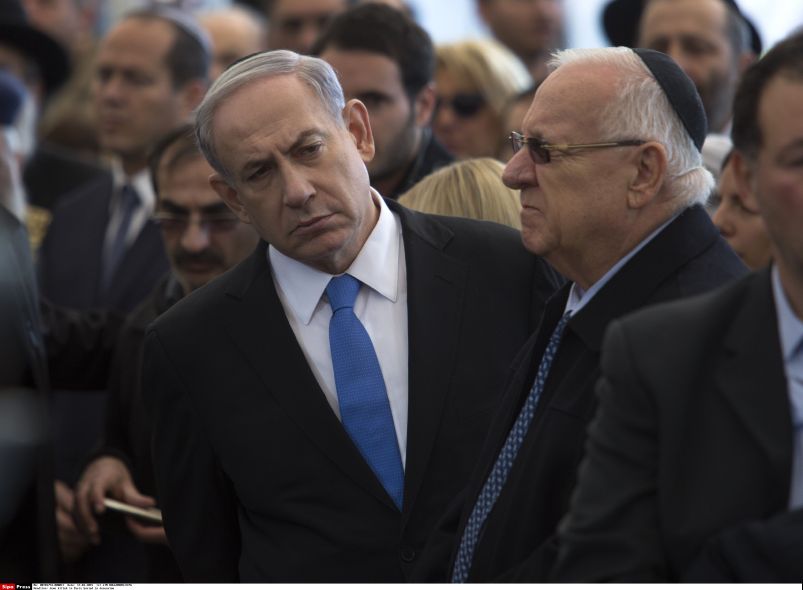I wanted to give you a brief update on the Israeli election, which is coming up on March 17th. The poll of polls maintained by Haaretz now shows Likud and Zionist Camp/Labor tied at 23 seats. Their count tends to run behind a day or so, but there’s been a flurry of new polls. I don’t have enough of a sense of the comparative merits of the difference in pollsters to be able to sift beneath that topline number.
As far as I can see, no poll has shown even a one-seat lead for Likud. It’s a bunch of ties and some ZC/Labor leads. In any case, it at least suggests a better-than-even chance that Netanyahu’s speech had a very small but real impact on his numbers — at least his numbers relative to Labor.
But the biggest development over the last couple days comes not from the polls or the campaign but from Israel’s President Reuven Rivlin. As in most parliamentary systems, the presidency is largely ceremonial. But the occupant does get to choose who will get the chance to form a government. And reports suggest that if there is not a clear winner — either in purely party-seat-count terms or in one or another party leader’s ability to form a durable government — he will push for a government of national unity, which should focus on electoral reform.
Now, what amounts to a durable or robust government is in the eye of the beholder. But Rivilin sees the numbers as well as anyone. And there’s a pretty good argument that neither side is going to be in a position to put together a durable government.
So it seems that Rivlin may be signaling that he will, in essence, choose the government. And he will not be overly swayed by a one- or two-seat advantage in either direction.
There seems to be very little appetite for a national unity government either among the parties or with the public at large. But if Rivlin forces the matter, which in the unique set of circumstance in play here, I sense he could do, who would be Prime Minister?
Though polls still show that more Israelis see Netanyahu as a Prime Minister than Herzog, there’s a huge amount of anti-Netanyahu sentiment, especially at the party leadership level of many of the parties. Needless to say, remaining Prime Minister, at the head of almost any coalition, remains Netanyahu’s singular goal. But it is hard for me to see where ZC/Labor having fought Netanyahu to an inability to form a new government would allow him to remain Prime Minister under a national government. Especially for ZC/Labor and the centrist party Yesh Atid, the campaign has been highly personalized around Netanyahu himself: basically, Netanyahu has to go.
Post-election coalition horse-trading in Israel is notoriously cynical and disconnected from pre-election promises and campaign messages. But this would still present a major obstacle. The picture seems to be more muddled, not less, as we get to little more than a week before the vote.






